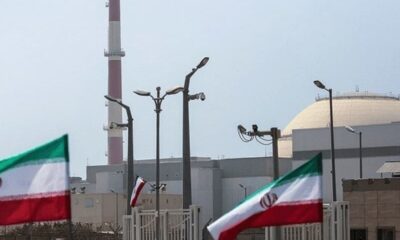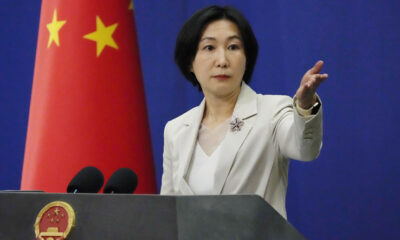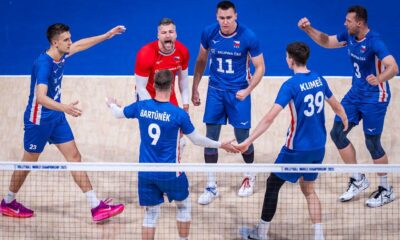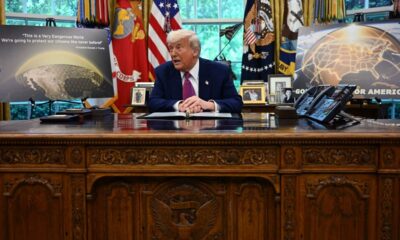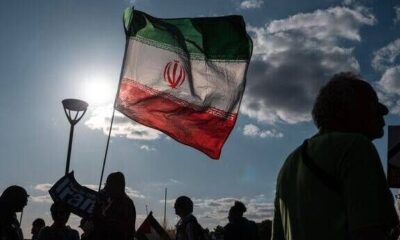Science
Academic Assassinations Threaten Global Scientific Community

The deliberate targeting of scientists has emerged as a significant threat to the integrity of global scientific research, according to Iranian academic Alireza Qaiumzadeh. He asserts that the principle of protecting scientists as civilians is increasingly at risk, particularly in conflict zones. Over the past two decades, Iranian physicists and engineers have faced targeted assassinations, raising profound concerns about the safety of researchers worldwide.
This alarming trend began to gain attention in 2007 with the mysterious death of Ardeshir Hosseinpour, a nuclear physicist at Shiraz University, who was believed to have died from poisoning or radiation exposure. Since then, at least five more Iranian researchers have lost their lives under similarly troubling circumstances. Among them is Masoud Ali-Mohammadi, a particle physicist who represented Iran at the Synchrotron-light for Experimental Science and Applications in the Middle East (SESAME) project. This initiative is notable as the only scientific collaboration between Iran and Israel.
Others who have tragically died include Majid Shahriari, another representative at SESAME, and Mohsen Fakhrizadeh, both of whom were killed in attacks involving bombs or gunfire in Tehran. These incidents were never officially acknowledged or condemned by international scientific bodies, yet the implicit message remains clear: scientists working in sensitive political fields are viewed as strategic targets, even when far removed from active conflict.
Escalation of Violence Against Scientists
The situation has escalated, moving from covert killings to open military assaults on academic institutions. In June 2023, Israeli airstrikes on residential areas in Tehran and Isfahan resulted in the deaths of at least 14 Iranian scientists and engineers, along with their family members. The victims specialized in fields such as materials science, aerospace engineering, and laser physics. Qaiumzadeh emphasizes that this shift marks a dangerous precedent, treating scientists as combatants solely due to their expertise.
The assassination of scientists represents more than just isolated tragedies; it constitutes a direct attack on the collective knowledge of humanity. Qaiumzadeh argues that unless the global community reacts, the precedent being established will jeopardize the safety of researchers everywhere and undermine the idea that knowledge should be free from the constraints of warfare.
International humanitarian law clearly stipulates that civilians, including academics, must be protected. Targeting scientists based on their professional qualifications undermines the principles outlined in the Geneva Convention and blurs the lines between civilian and military roles. Despite its political complexities, Iran remains a signatory to the Nuclear Non-Proliferation Treaty and the International Atomic Energy Agency, entitling its scientists to conduct peaceful research in fields such as medicine, energy, and industry.
Qaiumzadeh warns that normalizing the preemptive assassination of scientists could have far-reaching consequences. What prevents rival nations from targeting researchers in fields like artificial intelligence in Silicon Valley, quantum physics in Beijing, or genetic studies in Berlin? If knowledge becomes a liability, no researcher is safe.
The Silence of the Scientific Community
Equally troubling is the apparent silence from the international scientific community. Organizations such as the United Nations, UNESCO, and the European Research Council, along with leading national academies, have failed to condemn these killings both past and present. This silence does not equate to neutrality; instead, it legitimizes the treatment of scientists as military assets, discouraging collaboration in critical research areas and instilling fear among emerging researchers.
Science thrives on openness and exchange. When researchers are targeted for their expertise, the essence of science as a cooperative human endeavor is severely compromised. The loss of these scientists is not solely an Iranian tragedy; they were part of a global network committed to advancing knowledge. Their deaths should alarm every nation reliant on research to address pressing global challenges, such as climate change and pandemics.
In response to these alarming trends, Qaiumzadeh calls for action from international scientific organizations. He advocates for public condemnation of the assassination of scientists and their families, support for independent investigations in accordance with international law, and explicit protections for scientists and academic institutions in conflict zones.
Voices within Israel’s scientific community could play a crucial role in this discourse, as many Israeli academics value collaboration and academic freedom. The current situation serves as a test case for the future of global science. If the international community permits the targeting of scientists, it sets a precarious precedent that could extend beyond regional conflicts.
What may currently appear as an assault on scientists from the Global South could soon threaten researchers in China, Europe, Russia, or the United States. For science to exist without borders, it is essential that scientists are recognized and protected as civilians. This principle faces a direct challenge today, and the global community must establish a firm stance: killing scientists for their expertise is unacceptable. Ignoring these attacks invites a future where knowledge could become a weapon, and those who create it rendered expendable. Such a reality is one that society cannot afford to accept.
-

 Entertainment3 months ago
Entertainment3 months agoAnn Ming Reflects on ITV’s ‘I Fought the Law’ Drama
-

 Entertainment4 months ago
Entertainment4 months agoKate Garraway Sells £2 Million Home Amid Financial Struggles
-

 Health3 months ago
Health3 months agoKatie Price Faces New Health Concerns After Cancer Symptoms Resurface
-

 Entertainment3 months ago
Entertainment3 months agoCoronation Street’s Carl Webster Faces Trouble with New Affairs
-

 Entertainment3 months ago
Entertainment3 months agoWhere is Tinder Swindler Simon Leviev? Latest Updates Revealed
-

 Entertainment4 months ago
Entertainment4 months agoMarkiplier Addresses AI Controversy During Livestream Response
-

 Science1 month ago
Science1 month agoBrian Cox Addresses Claims of Alien Probe in 3I/ATLAS Discovery
-

 Health4 months ago
Health4 months agoCarol Vorderman Reflects on Health Scare and Family Support
-

 World2 weeks ago
World2 weeks agoBailey Announces Heartbreaking Split from Rebecca After Reunion
-

 Entertainment4 months ago
Entertainment4 months agoKim Cattrall Posts Cryptic Message After HBO’s Sequel Cancellation
-

 Entertainment3 months ago
Entertainment3 months agoOlivia Attwood Opens Up About Fallout with Former Best Friend
-

 Entertainment2 weeks ago
Entertainment2 weeks agoCoronation Street Fans React as Todd Faces Heartbreaking Choice

